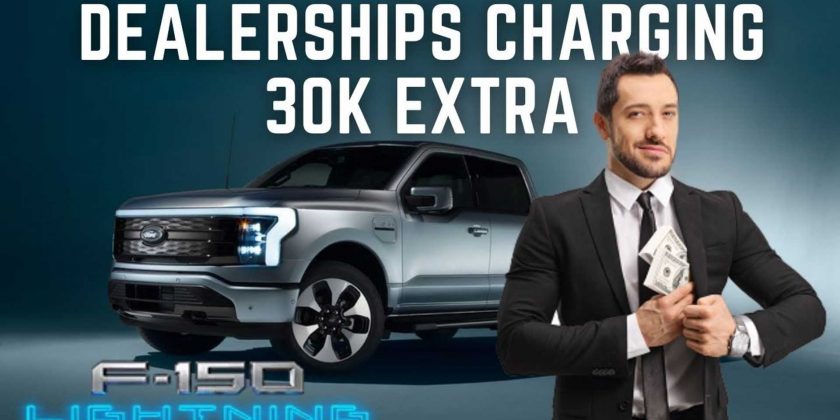The market launch of the Ford F-150 Lightning is just around the corner and the order bank will be opened in January. However, reports now are emerging about dealers’ “market adjustments.”
According to Sam Alexander‘s video, the Koons Ford Falls Church dealer in Virginia sent an email to reservation holders, which says that to be among the 25 priority orders, there will be a $30,000 “market adjustments” on the MSRP price. The other customers (non-priority) will have to pay $10,000 more.
Not only that, any customer who placed an order will have to agree to a $5,000 non-refundable deposit.
That’s quite a significant margin on the electric pickup, comparable to the recent $40,000 markup on the Toyota RAV4 Prime and $50,000 on the Mercedes-Benz EQS.
Why EVs get markups?
Someone might ask, why is that happening, as the MSRP for the entry-level version starts at $39,974 and goes up to above $90,000 in the case of the top-of-the-line version.
Well, this is the direct result of the imbalance between demand and supply. Currently there is general huge disproportion between the high demand and limited availability of new cars, which is even higher in the case of electric models – especially at launch time.
Ford had close to 200,000 reservations for the F-150 Lightning, which is probably a few times more than it will be able to produce in 2022.
This is why we see a lot of substantial markups on new EVs at dealerships. Some associate it with the business model and dealers, but it’s actually a general thing in the free market, not related to a particular business model.
For example, Tesla – which operates within a direct sales business model – within less than a year, has increased the base price of the Model Y by $10,500 (or 22%) and the Model 3 by $8,500 (or 23%). We will not be surprised if Rivian increases the price in not-too-far-off future.
In other words, it does not really matter at which point in the chain the markup is applied.
Moreover, it works both ways. If sales are not progressing well, dealers and manufacturers are offering huge rebates or great deals.
Finally, the price adjustments/spikes are not a bug, but a feature of the free market, like grease or a damper in the demand and supply mechanism. If there is a limited number of cars, their value goes up, and a higher price is a way to see who is willing to pay more (needs a particular thing more) than others, prioritizing this thing over other things in life.
As we understand it, the markups are not on the price of the car (MSRP is), but the price of getting the car before others who are also waiting. The longer the queue, the higher it costs to get in the front of the queue.
The only solution is to increase the production of electric cars and batteries to balance the demand and supply.
Source: Read Full Article

